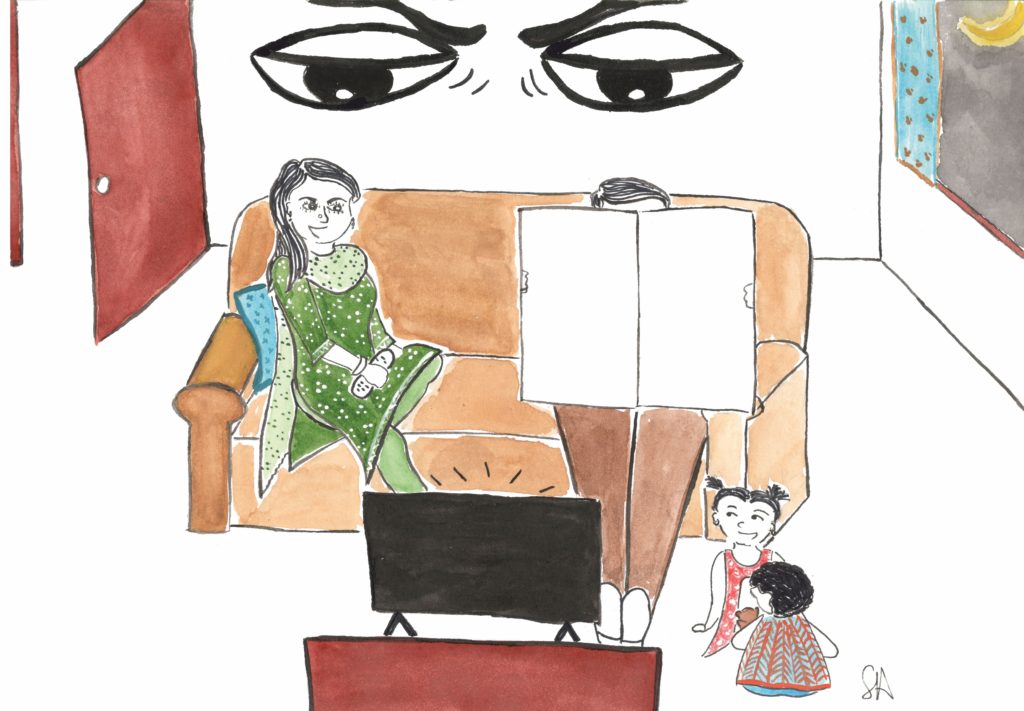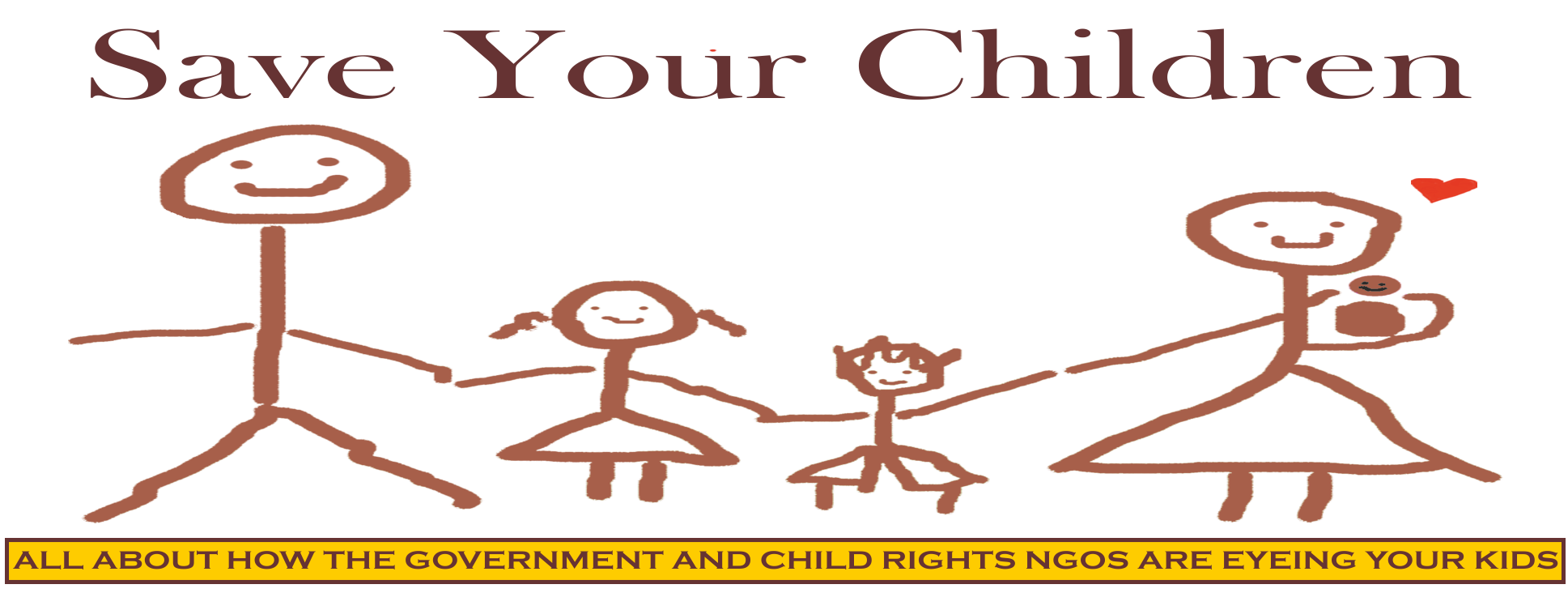This article was first published on 14 October 2017 with the title Some Ethical Objections to the ‘Named Person Scheme’ in the Indian newspaper, the Sunday Guardian as part of its on-going series with us called ‘Global Child Rights and Wrongs’.
In this essay Scottish activist June Conway describes the controversy around a Scottish law, the “Named Person Scheme”, which appoints a state official to keep all children and their parents under state scrutiny and mandatory reporting from conception till majority. This scheme was developed under the Scottish government’s ‘Getting It Right For Every Child’ Policy (GIRFEC) which the Scottish government describes on its website as an approach to child policy that “has been built up” from the United Nations Convention on the Rights of the Child (UNCRC). It is interesting to see how the UNCRC was interpreted in Scotland to develop a plan to keep families under constant and all-pervasive state scrutiny, and how parents were the last to find out about it. Though the UNCRC pays lip service to a child’s rights to its family, not a single country has interpreted its provisions to develop schemes that would strengthen vulnerable families. In practice its implementation in country after country has meant the establishment of laws and agencies that police the family. Its provisions have been used to justify increasingly swift and permanent severance of a child’s ties with its natural family.
State Surveillance For Every Child In Scotland?
The Scottish government passed the Children and Young People Act in 2014 mandating that every child in Scotland should have a state-appointed ‘Named Person’ to oversee its wellbeing from conception until the child reaches the age of 18 years. The state official might be a midwife pre-birth, a health visitor for pre-school children or a head teacher for the older child. It became known as the ‘Named Person Scheme’ and was part of the Scottish government’s Getting it Right for Every Child (GIRFEC) policy.
In order to form their opinions about a child’s wellbeing the Named Person must refer to eight wellbeing indicators and determine if the child is safe, healthy, achieving, nurtured, active, respected, responsible and included. According to a parent council information website, all of these wellbeing indicators are necessary for a child or young person to reach their potential. They are used to record observations, events and concerns and as an aid to creating an individual plan for a child. It should be noted that the wellbeing indicators are sociopsychological constructs that cover every aspect of life, but are very vague. At the heart of the policy is the notion that children are inherently vulnerable and require constant vigilance. Childrearing is so complex and difficult that parents cannot be trusted to make important decisions. Parents are expected, therefore, to work in partnership with state officials who are the true experts. By getting to know children within their families, sharing important information about them with health, social care and education professionals, the Named Person can form a picture of the whole child within their family. It is the Named Person who decides how well the child is progressing and whether or not parenting is a success. It can be seen that within this scheme parents are under constant scrutiny and have no right to a private life.

Another important principle underlying GIRFEC is the idea that concerns about a child`s future wellbeing can be anticipated and early interventions can be put in place to prevent problems growing into larger concerns. What this means is that the family is expected to follow the guidance of the Named Person and his or her band of professional collaborators, in order to ward off future trouble. There is no mention within the Act of what must happen if a parent disagrees with the opinion of the experts; but, within official guidance issued alongside the legislation, any resistance by a parent is considered suspect and is itself a `concern`. So parental resistance might raise the spectre of child protection. The policy could not be more intrusive or coercive.
Opposition to the Named Person Scheme
Many comments from abroad questioned the moral fibre of parents in Scotland at the easy implementation of an Act that Hitler or Stalin could only have dreamed about. What had happened to the freedom loving Scots?
The truth is that the Named Person Scheme was developed in committee rooms under the radar of the Scottish population and with hardly any mainstream media attention at all. While it took several years of training and conferencing to prepare health visitors, teachers and social workers to take on the role of the Named Person, parents were kept in the dark and the last people to know what was coming down the pipeline. There is no doubt that this level of secrecy implies that those policy officials arranging the Named Person trials and training were well aware of the potential unpopularity of the scheme, as later polls eventually revealed it to be.
As it happened there were small groups in Scotland more alert to these matters than the population at large. For example, Schoolhouse, a home education support group, is representative of an independently minded set of people well aware when the state threatens to encroach on their freedom to educate their own children. It was one of the first groups to raise the alarm, not an easy task, since the BBC and local newspapers were not interested initially. Other groups such as the Tymes Trust, Clan Childlaw Centre and Christian organisations joined together with Schoolhouse to form the `No to Named Persons` or ‘NO2NP‘ campaign, amassing thousands of signatures against the policy. But it was when NO2NP appealed the legislation through the courts that the media finally took an interest.
Supreme Court Judgment
After due process the legislation was eventually appealed in the Supreme Court, the highest court in the United Kingdom. Much to the embarrassment of the Scottish government, the five judges were unanimous in declaring that Holyrood had `exceeded its powers by making a law that allowed public bodies to share sensitive private information about children and parents without consent`. The information-sharing provisions of the proposals were `incompatible with the rights of children, young persons and parents under Article 8 [right to family life] of the European Convention of Human Rights`.
In a telling statement there was also recognition of where such illegal powers might lead.
`The first thing that a totalitarian regime tries to do is to get to the children, to distance them from the subversive, varied influences of their families, and indoctrinate them in their rulers’ view of the world .` [UK Supreme Court judgment, 2015]
The Scottish government had no other option than to abandon its original intention to allow unrestricted data sharing about families among professionals and then to coerce families to follow Named Person advice.
The Children and Young People (Information Sharing) (Scotland) Bill
It took nearly a year to rewrite the legislation in an attempt to make it compatible with data protection, human rights and confidentiality laws. But campaigners against the Named Person scheme are still not happy with the new draft legislation on information sharing. It is left to professionals to decide in each case whether or not information sharing will `promote, support or safeguard the wellbeing of a child or young person` and if that information sharing is `compatible with data laws`. Given that data breaches have already taken place much to the alarm and distress of many families in Scotland it is unlikely that professionals, trained to share information at all costs, truly understand that unless there is a risk of `significant harm` to a child, consent to share information is required.
